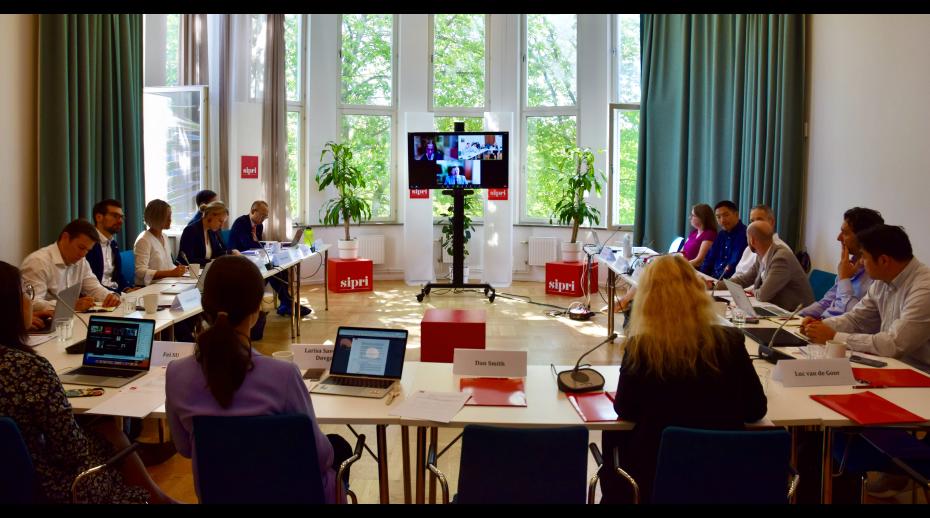
On 13–14 June, SIPRI hosted a hybrid—in-person and online—expert workshop on ‘Cyber Incidents and Threat Perceptions: Views from China, Russia, Europe and the United States’ in Stockholm under the Chatham House Rule.
Building off a November 2022 workshop in Washington, DC and a follow-on SIPRI report on cyber posture trends, this workshop brought together over 30 technical, legal, diplomatic, academic and military experts from China, Russia, Europe and the USA. The workshop’s welcome address was given by Dan Smith, SIPRI Director, and the closing keynote address was given by Dr Regine Grienberger, Cyber Ambassador, German Federal Foreign Office. The workshop was moderated by three SIPRI experts: Dr Lora Saalman, Senior Researcher; Fei Su, Researcher; and Larisa Saveleva Dovgal, Research Assistant.
The workshop provided greater granularity on cyber incidents—cyber intrusions and cyberattacks—and threat perceptions that are formative in shaping national and regional cyber postures, as well as global cyber norms. It consisted of six panel discussions that explored four themes:
- Key trends, drivers and challenges in cyber incidents;
- Political, financial, technical and military impacts of cyber incidents;
- Unilateral, bilateral, multilateral, private sector and private-public partnership approaches to cyber incidents;
- Recommendations for improving cyber resilience and cooperation, and fostering stability in cyberspace.
Findings from this workshop will contribute to a forthcoming SIPRI publication and broader project on escalatory trends and recommendations to enhance global cyber stability.
About the project
This workshop marks the second phase of a project on ‘Chinese, Russian and US Cyber Postures and their Impact on Escalation and Stability’ funded by the German Federal Foreign Office. The project seeks to map along a spectrum the trajectories of cyber posture and threat perceptions among China, Russia and the USA and to explore trilateral cyber dynamics among these three states as well as their impacts for the Europen Union (EU). The aim of this project is to generate near-, medium- and long-term recommendations for the EU on navigating potential escalation and enhancing global stability in cyberspace.